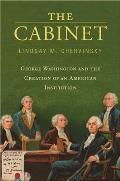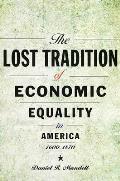More Online Events to Stay Home For
Here’s another sampling of online events involving Revolutionary New England history to watch for.
Fort Ticonderoga
The historic site provides regular livestreams. Many are free to watch on Facebook, including oxen and cooking demonstrations. The “Soldier’s Life” series (including a presentation on the uniform of 26th Regiment today at 1:00 P.M.) runs 45 minutes, costs $10, and requires advance registration.
Fraunces Tavern
Thursday, 7 May, noon to 1:00 P.M.
In “Preserving the Past: The Restoration of Fraunces Tavern,” historian Mary Tsaltas-Ottomanelli explores the history of 54 Pearl Street, home of Fraunces Tavern Museum and Restaurant in New York; its significance to the American Revolutionary era; and the efforts to restore and preserve the building over the last 300 years. Register here.
Thursday, 21 May, 6:30 to 7:30 P.M.
Lindsay Chervinsky, author of The Cabinet: George Washington and the Creation of an American Institution, discusses the first presidential cabinet. President Washington modeled his new cabinet on the councils of war he had led as commander of the Continental Army, tinkering with its structure throughout his administration. As Washington faced an increasingly recalcitrant Congress, he came to treat the cabinet as a private advisory body to summon as needed, greatly expanding the role of the president and the executive branch. Register here.
Massachusetts Historical Society
Thursday, 14 May, 5:30 to 6:30 P.M.
Liz Covart of the Ben Franklin’s World podcast interviews Daniel R. Mandell, professor at Truman State University, about his new book, The Lost Tradition of Economic Equality in America, 1600-1870. Although Americans today are concerned about the ever-increasing levels of wealth and income, many continue to believe that their country was founded on a person’s right to acquire and control property. Mandell argues that the US was originally deeply influenced by the belief that maintaining a “rough” equality of wealth was essential for a successful republican government. Free but registration required.
Wednesday, 20 May, 5:30 to 6:30 P.M.
The M.H.S.’s Director of Programs, Gavin Kleespies, offers “Misled: A Virtual Tour of Inaccurate Historical Markers” in Cambridge, including “mimic” houses, mislabeled trees, and even a fake rock. Markers influence what and who we remember, but sometimes they aren’t quite what that appear. Some are just wrong. Even in a city known world-wide as a home to rigorous scholarship, misleading and inaccurate historical markers can be found. While these markers don’t always reflect the whole truth, sometimes the stories they tell offer important lessons about who gets to shape history. Free but registration required.
Cambridge Center for Adult Education
Saturday, 16 May, 10:00 A.M. to noon
Boston 1775 friend and occasional guest blogger Charles Bahne leads an online tour of “Tory Row.” For more than two centuries, Brattle Street has been one of the finest residential streets in America. In 1775, George Washington and his army made their headquarters in the abandoned mansions of seven wealthy Loyalists—all of which still stand today. Later two of those mansions were the homes of the poets Longfellow and Lowell. Brattle Street residents have also invented baking powder, Fig Newtons, Polaroid cameras, and Sadie Hawkins Day. Cost $35.
Fort Ticonderoga
The historic site provides regular livestreams. Many are free to watch on Facebook, including oxen and cooking demonstrations. The “Soldier’s Life” series (including a presentation on the uniform of 26th Regiment today at 1:00 P.M.) runs 45 minutes, costs $10, and requires advance registration.
Fraunces Tavern
Thursday, 7 May, noon to 1:00 P.M.
In “Preserving the Past: The Restoration of Fraunces Tavern,” historian Mary Tsaltas-Ottomanelli explores the history of 54 Pearl Street, home of Fraunces Tavern Museum and Restaurant in New York; its significance to the American Revolutionary era; and the efforts to restore and preserve the building over the last 300 years. Register here.
Thursday, 21 May, 6:30 to 7:30 P.M.
Lindsay Chervinsky, author of The Cabinet: George Washington and the Creation of an American Institution, discusses the first presidential cabinet. President Washington modeled his new cabinet on the councils of war he had led as commander of the Continental Army, tinkering with its structure throughout his administration. As Washington faced an increasingly recalcitrant Congress, he came to treat the cabinet as a private advisory body to summon as needed, greatly expanding the role of the president and the executive branch. Register here.
Massachusetts Historical Society
Thursday, 14 May, 5:30 to 6:30 P.M.
Liz Covart of the Ben Franklin’s World podcast interviews Daniel R. Mandell, professor at Truman State University, about his new book, The Lost Tradition of Economic Equality in America, 1600-1870. Although Americans today are concerned about the ever-increasing levels of wealth and income, many continue to believe that their country was founded on a person’s right to acquire and control property. Mandell argues that the US was originally deeply influenced by the belief that maintaining a “rough” equality of wealth was essential for a successful republican government. Free but registration required.
Wednesday, 20 May, 5:30 to 6:30 P.M.
The M.H.S.’s Director of Programs, Gavin Kleespies, offers “Misled: A Virtual Tour of Inaccurate Historical Markers” in Cambridge, including “mimic” houses, mislabeled trees, and even a fake rock. Markers influence what and who we remember, but sometimes they aren’t quite what that appear. Some are just wrong. Even in a city known world-wide as a home to rigorous scholarship, misleading and inaccurate historical markers can be found. While these markers don’t always reflect the whole truth, sometimes the stories they tell offer important lessons about who gets to shape history. Free but registration required.
Cambridge Center for Adult Education
Saturday, 16 May, 10:00 A.M. to noon
Boston 1775 friend and occasional guest blogger Charles Bahne leads an online tour of “Tory Row.” For more than two centuries, Brattle Street has been one of the finest residential streets in America. In 1775, George Washington and his army made their headquarters in the abandoned mansions of seven wealthy Loyalists—all of which still stand today. Later two of those mansions were the homes of the poets Longfellow and Lowell. Brattle Street residents have also invented baking powder, Fig Newtons, Polaroid cameras, and Sadie Hawkins Day. Cost $35.



No comments:
Post a Comment